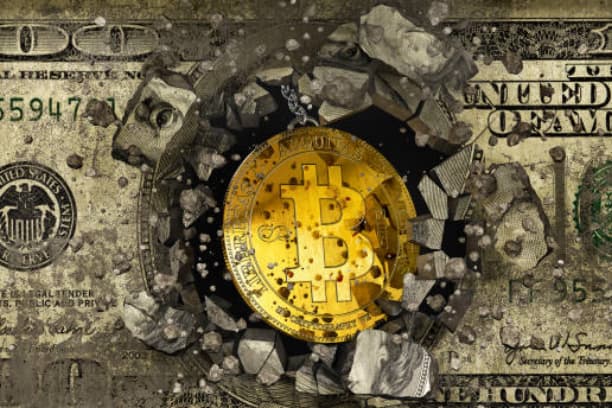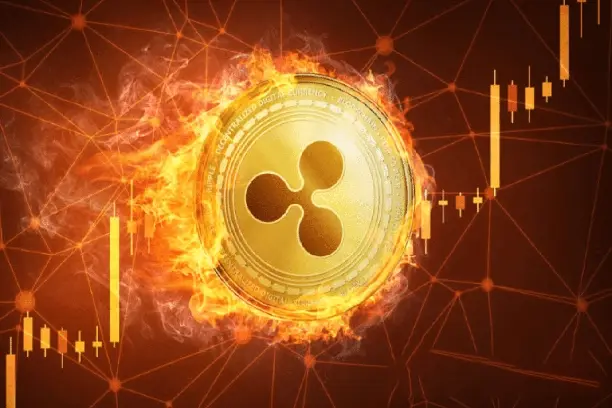With the rapid development of DeFi (Decentralized Finance), more and more investors and traders start to pay attention to these Decentralized Exchanges (DEX).In 2025, the ranking of DeFi exchanges is constantly changing, and for Chinese users, it is especially important to choose a stable, secure and smooth platform. In this article, we will give you a detailed inventory of the most popular DeFi exchange platforms in 2025, analyze the features, advantages and applicable scenarios of each platform, and help users make a more informed choice.

What is DeFi Exchange?
DeFi Exchange is a trading platform based on decentralized financial protocols. Unlike traditional centralized exchanges, DeFi Exchange does not require a third party to hold or control users' funds, and all transactions are executed through smart contracts. Due to its decentralized nature, DeFi Exchange can provide higher privacy protection and fewer operational restrictions, which is especially suitable for users seeking low-threshold, anonymous trading.
The most popular DeFi exchanges in 2025
The market for DeFi exchanges is still in rapid growth in 2025, and here are some of the popular platforms that are currently at the top of the rankings, attracting a large number of users thanks to their liquidity, depth of trading, and innovative features.
1. Uniswap
Uniswap is one of the most well-known and popular decentralized exchanges, which employs an automated market maker (AMM) mechanism that replaces the traditional buy and sell order book with a liquidity pool. Users can trade on Uniswap without having to register or authenticate themselves, and all the trading process is done by smart contracts.
Pros:
- Liquidity: Uniswap's liquidity pool is very large, allowing users to quickly find counterparties and reduce slippage.
- No Account Required: Uniswap does not require users to create an account or authenticate their real name, users can simply connect their wallet and trade.
- Cross-chain support: Supports many different blockchain networks, such as Ether, Polygon, etc., facilitating the exchange between different assets.
2. Sushiswap
As a fork of Uniswap, Sushiswap adds more features and incentives to its original foundation. It not only supports liquidity pool trading, but also introduces a variety of specialty services such as liquidity mining and cross-chain bridges, greatly enhancing the diversity of its ecosystem.
Pros:
- COMMUNITY-DRIVEN: Sushiswap is a decentralized community-driven project where all major decisions are voted on by community members.
- Diversified mining rewards: Sushiswap offers richer liquidity mining rewards, users can earn SUSHI tokens by providing liquidity.
- Cross-chain function: Sushiswap supports the exchange of assets on multiple chains, and users can conduct transactions across chains, which improves the applicability of the platform.
3. PancakeSwap
As the primary decentralized exchange on the Binance Smart Chain (BSC), PancakeSwap has attracted a large number of users by offering low transaction fees and a fast trading experience.PancakeSwap's AMM mechanism is similar to that of Uniswap, but its unique advantage lies in its support for assets on the BSC.
Pros:
- Low Transaction Fees: Due to the use of BSC, PancakeSwap's transaction fees are much lower than platforms on Ether.
- Rich DeFi Functions: In addition to AMM trading, PancakeSwap supports Yield Farming, Lottery, NFT and other diverse DeFi applications.
- Liquidity Incentive: Users are rewarded with CAKE tokens for providing liquidity, and the platform offers regular airdrops and incentives to increase the attractiveness of participation.
DeFi Exchange Selection Basis
Choosing the right DeFi exchange is not only about the liquidity and fees of the exchange, but also about the security of the platform, the user experience and whether it meets your personal investment needs. Here are some factors to consider when choosing a DeFi exchange:
1. Security
Smart contracts on DeFi exchanges are at the heart of trading, so contract security is critical. While decentralized exchanges do not have the risk of centralized management, smart contract vulnerabilities can still lead to loss of assets. Users should choose a trading platform that has been audited and has a good security record.
2. Mobility
Liquidity is an important factor in determining the efficiency and cost of trading. Exchanges with insufficient liquidity can lead to greater slippage, preventing users from getting the price they expect when trading. Choosing an exchange with higher liquidity can help minimize this risk.
3. Fees
Decentralized exchanges usually have lower commission fees than traditional centralized exchanges, but they vary from platform to platform. Especially for frequent traders, choosing a platform with low fees can save costs.
4. User experience
User experience is an important measure of how easy a platform is to use. An exchange with a clean interface, good functionality and easy operation can enhance the user's trading experience. Especially for beginners, a simple and intuitive operation process is very important.
Future trends in DeFi exchanges
With the development of blockchain technology and DeFi ecosystem, the future DeFi exchange will be more intelligent and diversified. In addition to the current common AMM exchanges, more innovative platforms such as Order Book DEX and Cross Chain DEX will enter the market to provide richer trading options. Emerging technologies such as privacy protection and Layer 2 solutions will also further enhance the performance and security of DeFi exchange.
summarize
In 2025, DeFi exchanges will remain an important part of decentralized finance, with competition among platforms focusing on liquidity, fees, and functionality. Choosing a DeFi exchange that suits your needs will not only increase transaction efficiency, but also reduce transaction costs. In this rapidly evolving field, investors should remain vigilant, understand the risks of the platforms, and make choices based on their individual needs.

Hopefully, this article has helped you better understand the most popular DeFi exchanges currently available and make an informed choice.







